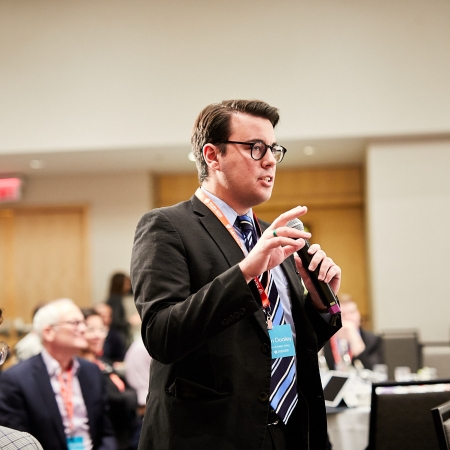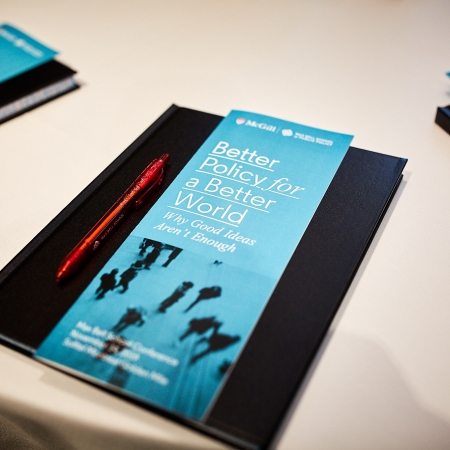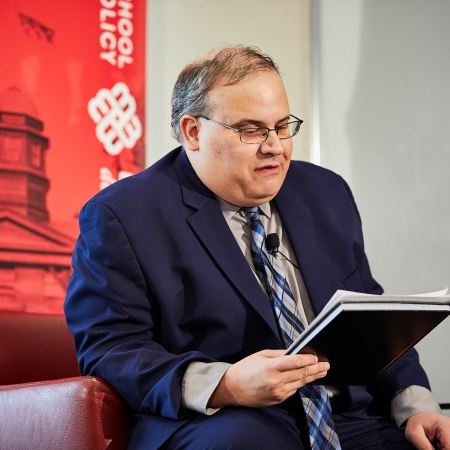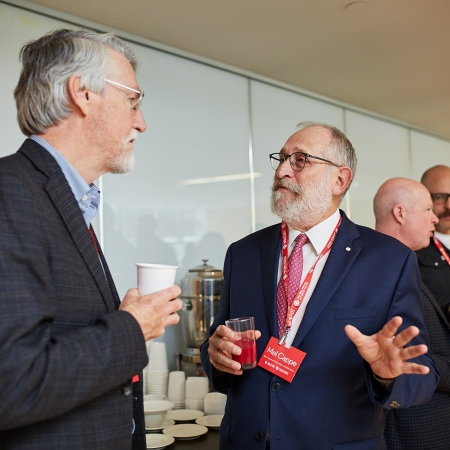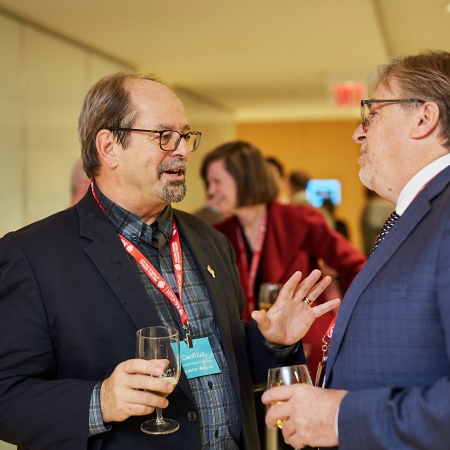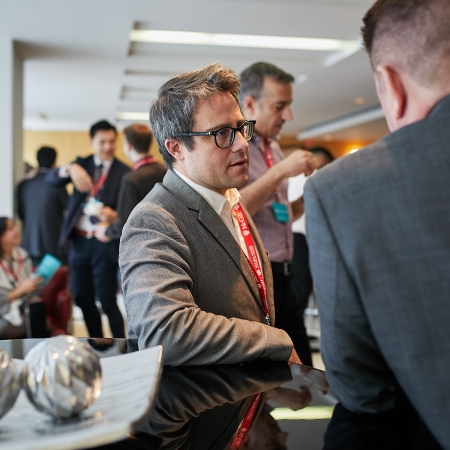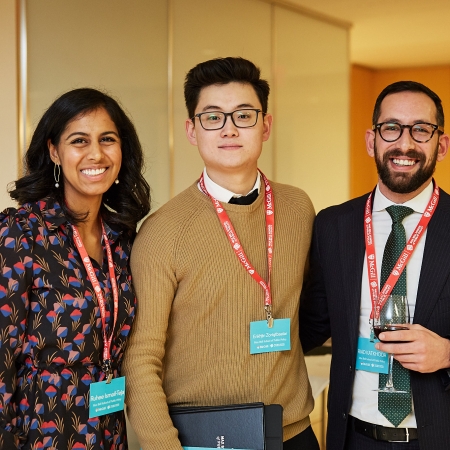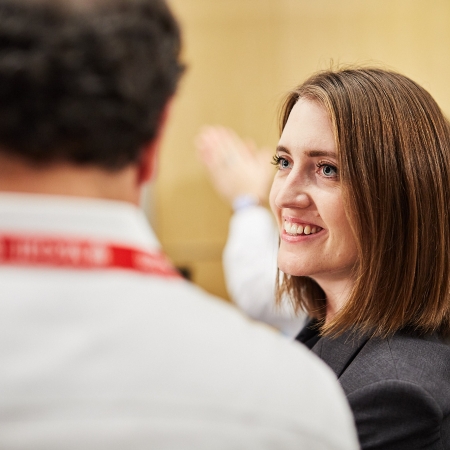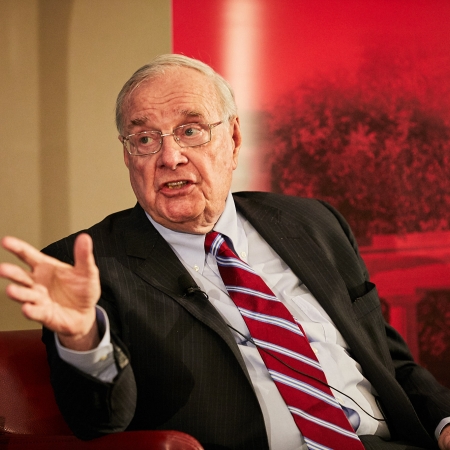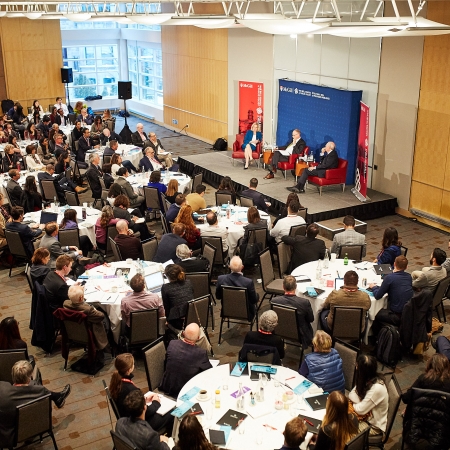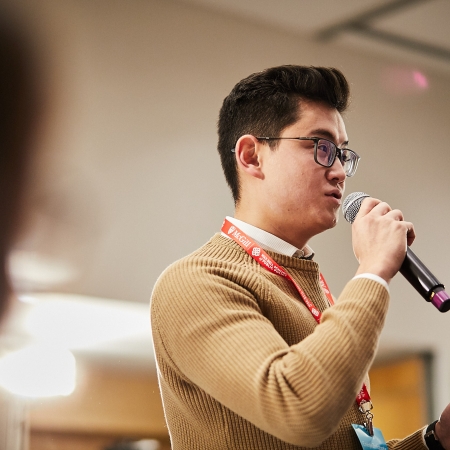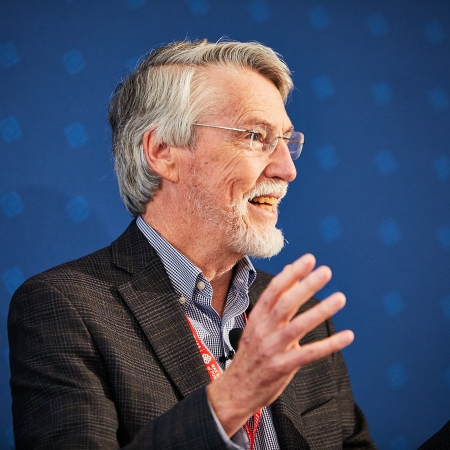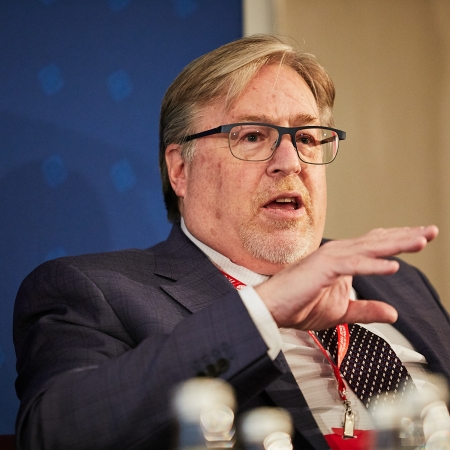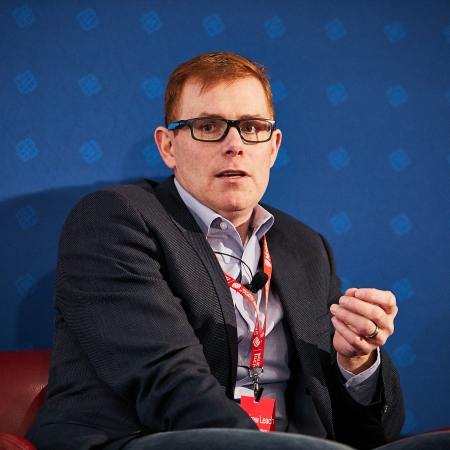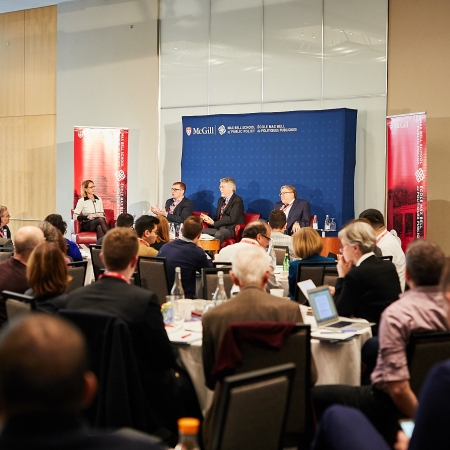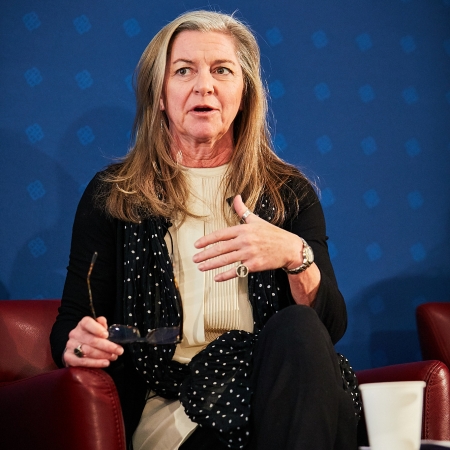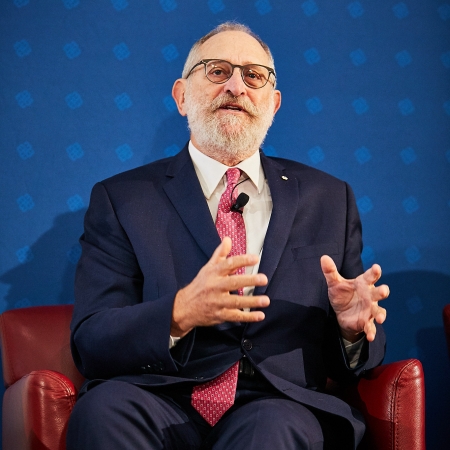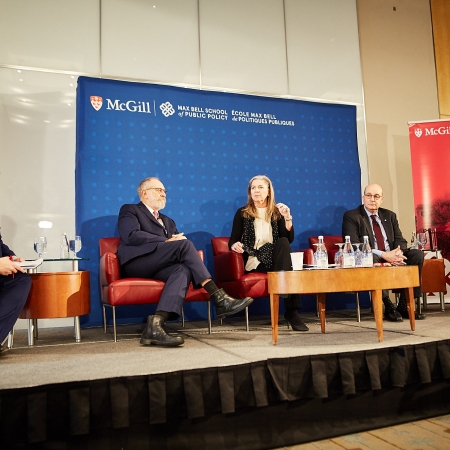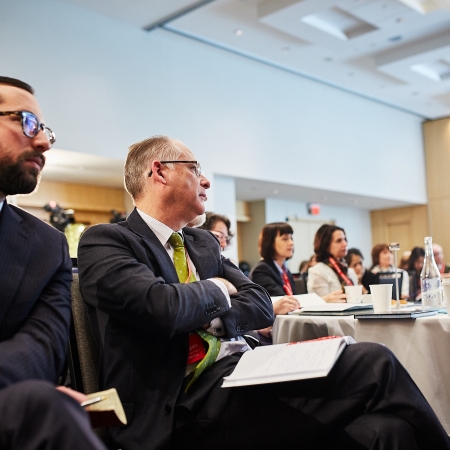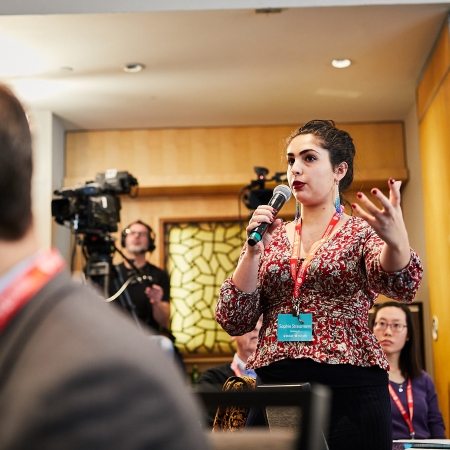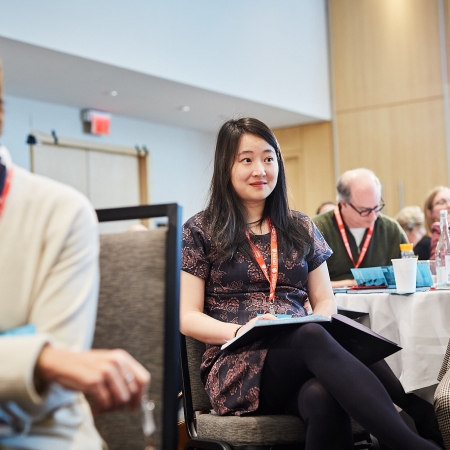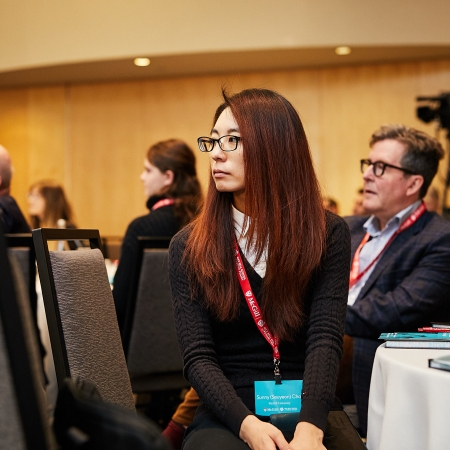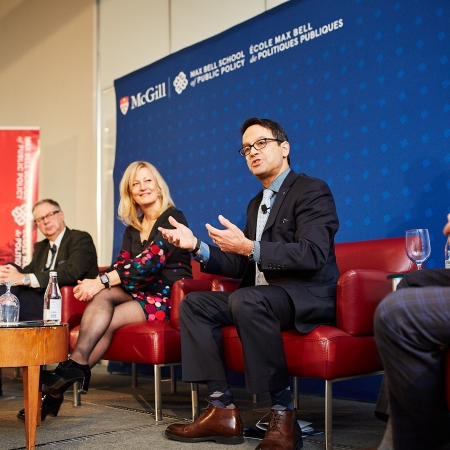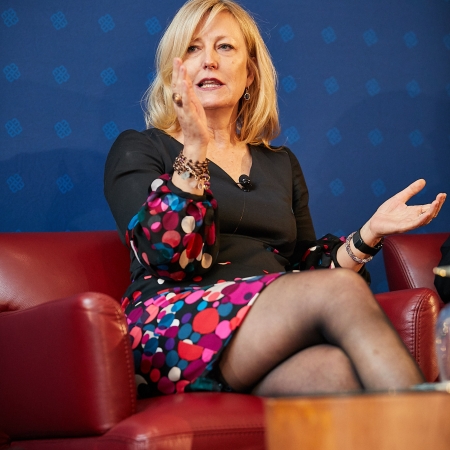On November 14, 2019, the Max Bell School of Public Policy hosted a full-day conference, Better Policy for a Better World: Why good ideas aren’t enough. During four panel sessions, 18 leading policy experts and politicians shared their insights on how to address complex policy issues in the real world.
Why is public policy difficult in the real world?

The first panel of the day offered a deeper dive into why good policy ideas are hard to put into practice. Paul Boothe, the Faculty Director of Ivey's Senior Public Leaders Program, moderated the panel, which brought together Ken Boessenkool, a partner at KTG Public Affairs, Bruce Lourie, president of Ivey Foundation, Velma McColl, principal of the Earnscliffe Strategy Group and Dan Tisch, CEO of Argyle Public Relationships.
The panel addressed the challenges inherent in policy making, touching on the roles of public debate and bureaucracy in formulating successful policy.
The origin of good ideas

The second panel of the day examined the role played by think tanks and policy schools in shaping policy. Daniel Béland, the director of the McGill Institute for the Study of Canada, moderated a panel that included Mel Cappe, a professor at the Munk School of Global Affairs and Public Policy, Martha Hall Findlay, president and CEO of the Canada West Foundation, Jack Mintz, the President’s Fellow at the School of Public Policy, University of Calgary, and Nancy Olewiler, a professor and director of the School of Public Policy at Simon Fraser University.
The speakers discussed the origin and propagation of good ideas in the policy process.
Assessing Canada's Ecofiscal Commission

The third panel examined Canada’s Ecofiscal Commission, a unique, purpose-built, think tank dedicated to the research and advocacy of pollution pricing, for a deeper look into how policy is made. Speakers assessed the role played by the Commission in influencing Canadian policy.
The panel brought together Andrew Leach, an associate professor at the Alberta School of Business, University of Alberta, David McLaughlin, a climate and sustainability public policy expert, Bill Watson, an economist and columnist at the Financial Post and a research fellow at the Institute for Research on Public Policy. The panel was moderated by Andrea Moffat, Vice President of the Ivey Foundation.
Leading through policy minefields

Director of the Max Bell School, Chris Ragan, chaired the final panel, a conversation with Paul Martin and Rachel Notley. Martin and Notley shared their experiences on navigating the policy minefields that they have encountered.
Using examples of key policies they had implemented in their work as politicians, these leaders explained how they had tackled issues such as the debt crisis, implementing a minimum wage, alleviating poverty and how these learnings could be adopted to our present context.
Looking into the future of policy making

In his closing statements, Andrew Potter, an associate professor at the Max Bell School, noted that the marriage between short-term political agendas and long term policy issues holds the key to the successful adoption of policy. He summed up the conference by stressing the importance of dialogue and continuous engagement between stakeholders and policymakers in the policy making process.


